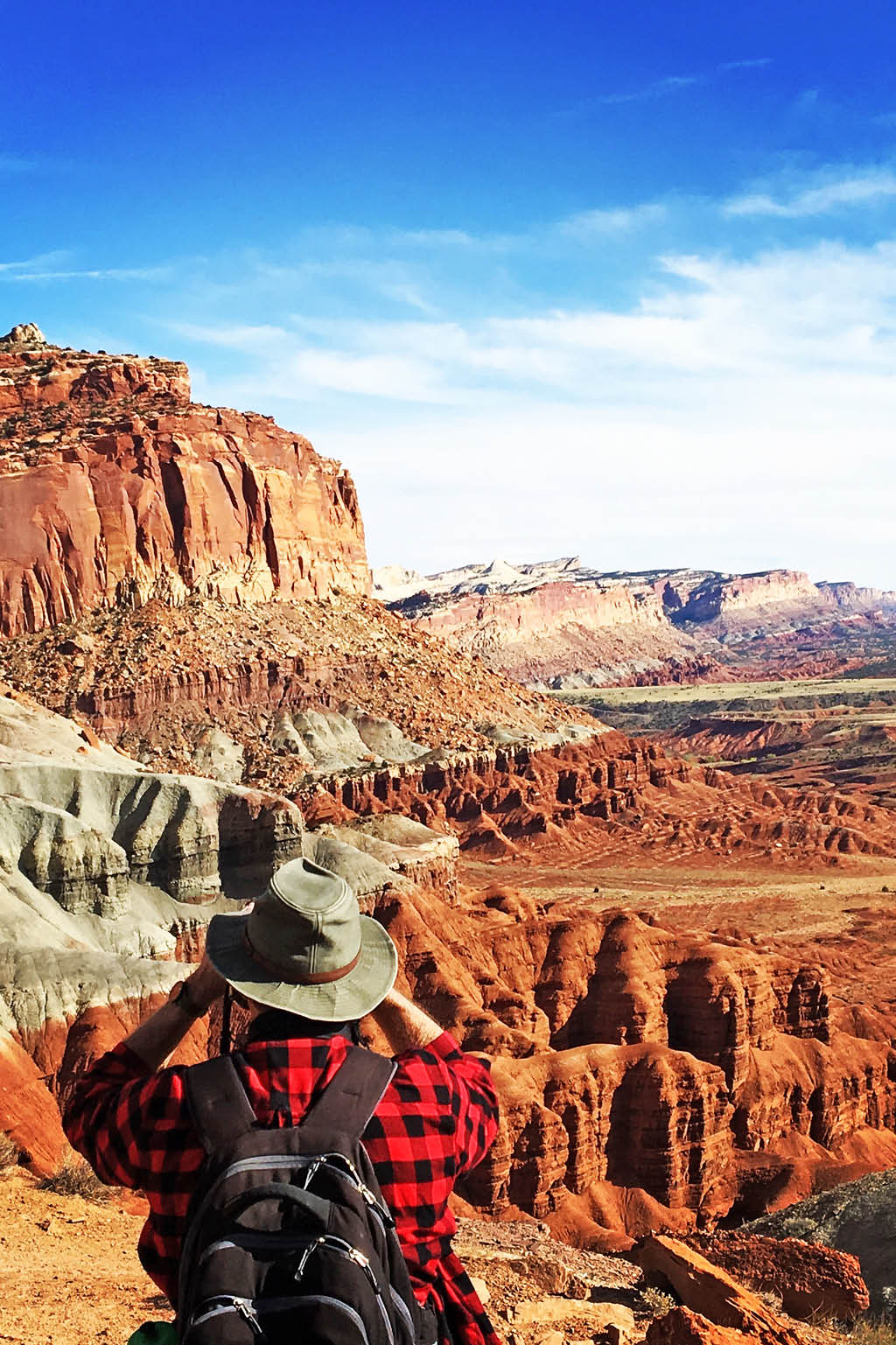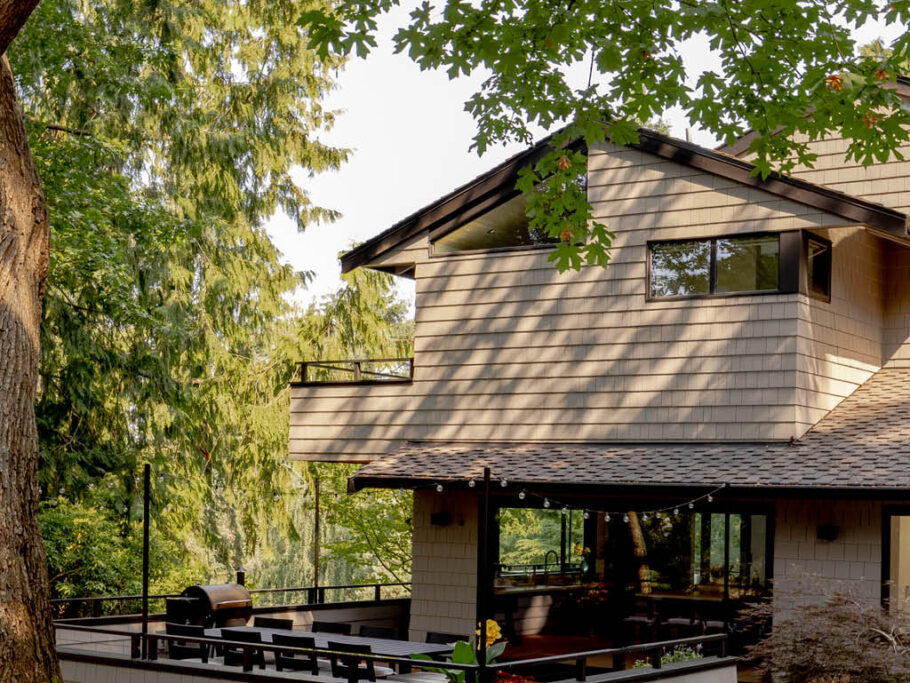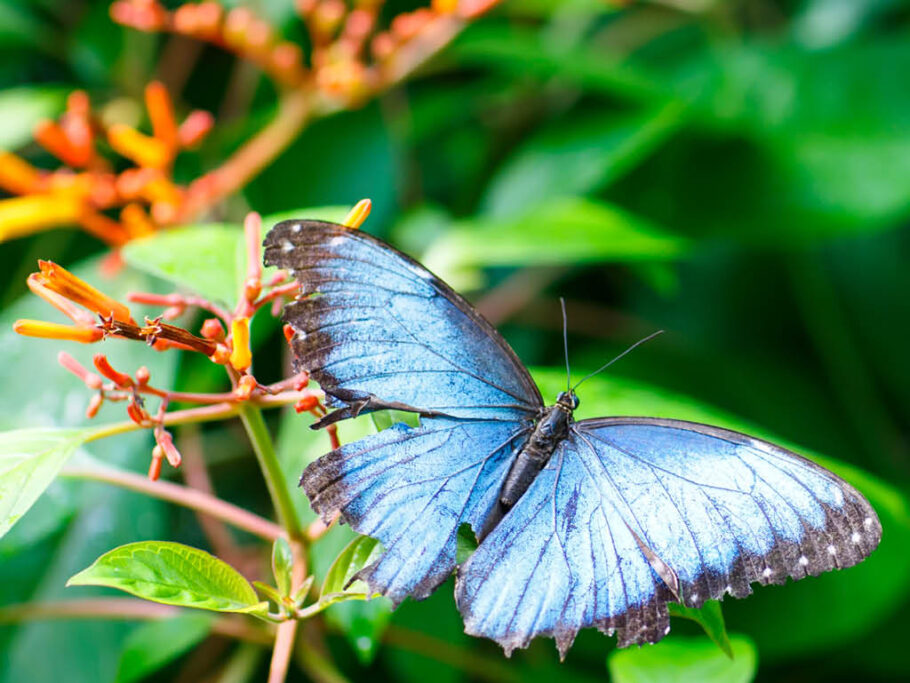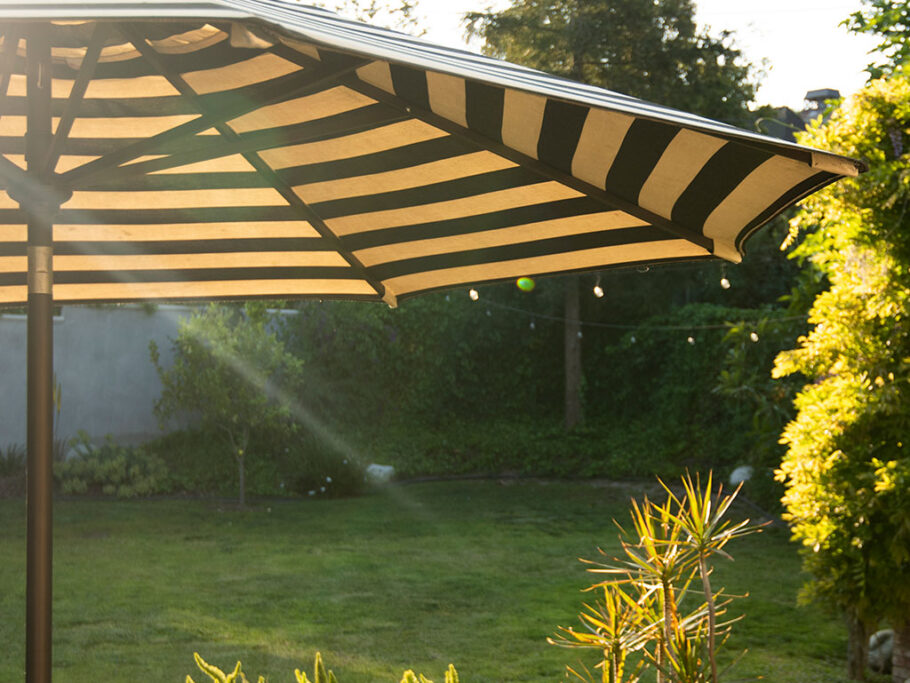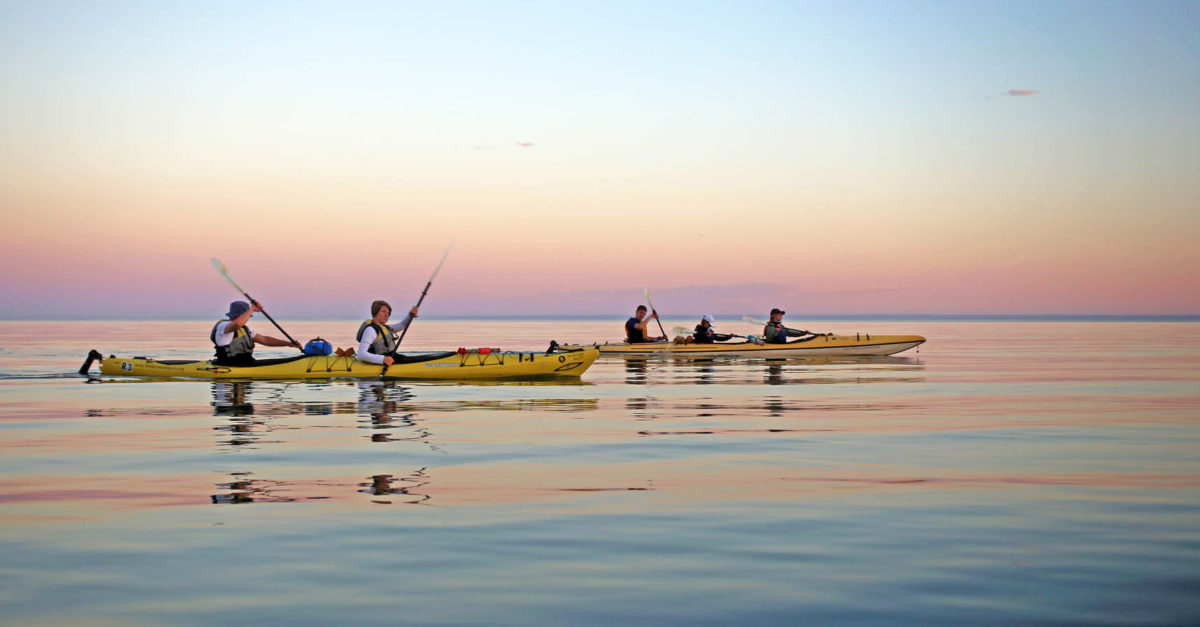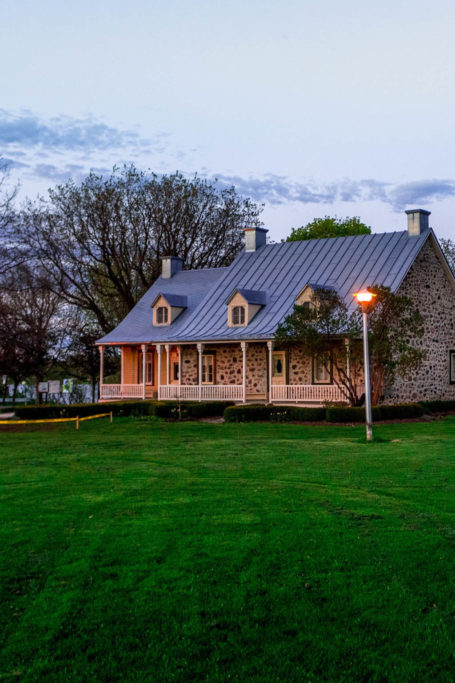The Nature of Inclusivity
The boundary waters canoe area of Minnesota’s northern border is a vast, untouched wilderness that attracts thousands of visitors each year. In order to protect the integrity of the land, the federal legislature proposed a bill in 1977 that would ban the use of motorboats in the water. Senator Wendell Anderson balked, claiming the bill would prevent women, children, and people with disabilities from enjoying the region because they lacked the skill or the strength necessary for operating manual watercraft.
In 1974, three years before the bills were introduced, two Minnesota teachers, Bill Simpson and Tom Rasmussen, had taken a coed group of middle-school students into the Boundary Waters for a winter camping trip. High-school senior Greg Lais went along to help. Although they had to sleep in snow shelters, called quinzhees, as temperatures dipped as low as forty degrees below freezing, the group had such a positive experience they knew that the wilderness could truly be accessible for all—if people were prepared.
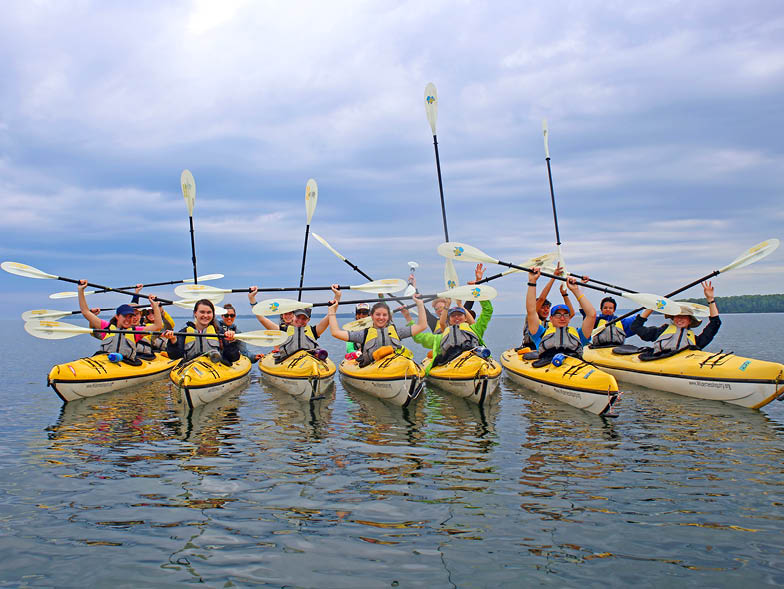
When Lais’s sister heard Senator Anderson’s statement, she challenged Lais to host a similar camping trip and encourage people with disabilities to take part. “We put together a group: two people who used wheelchairs, two people who were deaf, and a few friends; and we went up to the Boundary Waters,” says Lais. “We weren’t thinking of starting an organization at that point, but this trip really changed our worldview.”
The group recognized the benefits of getting out into nature—especially for people who are usually discouraged from participating in outdoor recreation. Lais and friends decided to establish a nonprofit program that was open to all people, regardless of age, gender, race, or ability.
Now with decades of trips under its belt, Wilderness Inquiry (WI) has grown into an international travel organization that still holds inclusivity as its core value, and, with its unremitting resolve, supports thousands of people with varying abilities in its quest to make its trips as inclusive as possible.
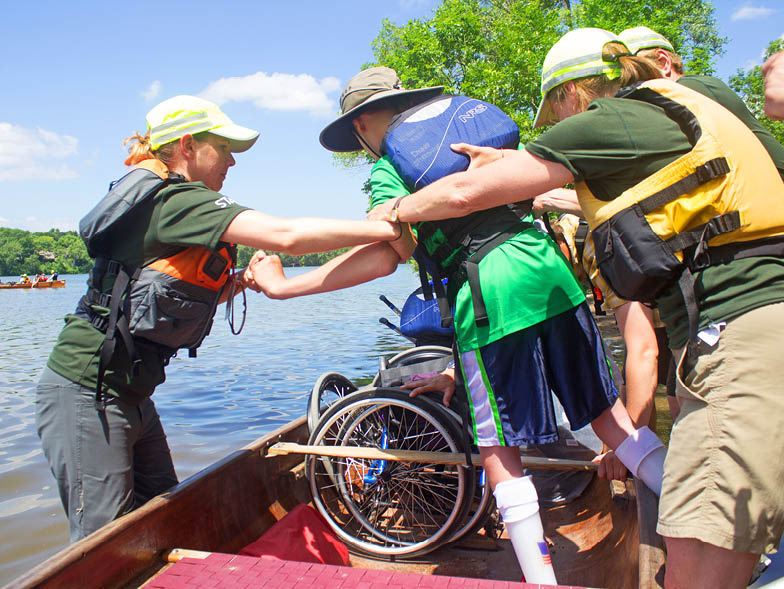
Adapting to Nature
While there are some adaptations to trips, the point of a WI experience is that everyone can participate side by side. Virtually no one is turned away because of a disability, and, regardless of a participant’s limitations, all he or she really needs to enjoy the experience is an open mind and a willingness to try.
“A lot of people talk about adaptive equipment, and we’ve evolved to use pieces that really do make a difference, like large balloon tires on wheelchairs, for instance,” says Lais. “But what we really do is provide support as human beings. For a lot of folks, all they really need is someone to lend them a hand once in a while, whether it be carrying a pack or something as simple as keeping track of their belongings.”
Every WI trip is staffed with guides called outdoor leaders, who are trained in the latest safety techniques to ensure that each trip is as enjoyable as possible for everyone involved. The organization has more than seventy-five full-time outdoor leaders from across the country, and each brings a different perspective and level of experience to the trips.
Suzanne Huggett, WI outreach manager and former outdoor leader, discovered the program after moving to Minnesota and immediately knew that she had stumbled upon something meaningful. “The most rewarding aspect of being an outdoor leader was working with such a diverse group of people and providing new experiences,” says Huggett. “It’s an incredible feeling to give that to someone and see their confidence and self-awareness change in an instant.”
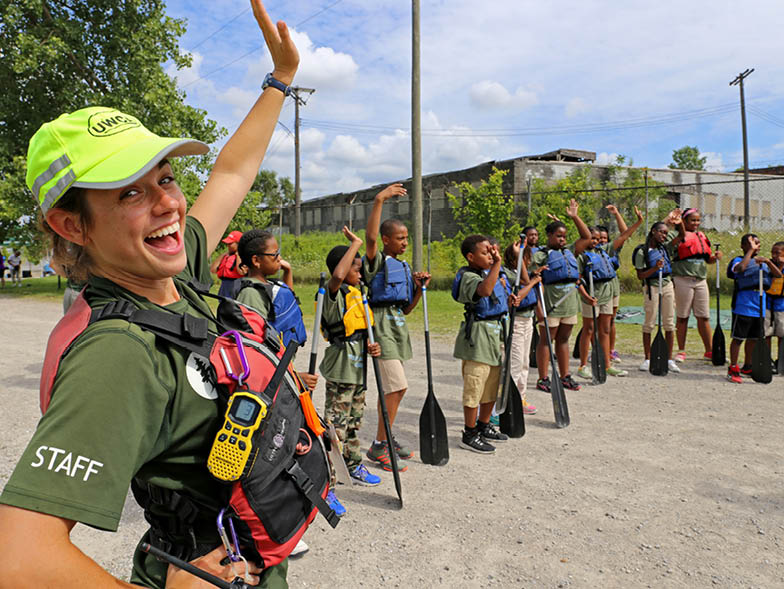
Outside the Boundary Waters
As outreach manager, Huggett is now responsible for creating new itineraries around the world, which are generally based on where the organization feels like they can provide the most exciting and accessible experience. However, for the first few years, trips were held exclusively in Minnesota. Lais says that wanderlust eventually kicked in, and the group needed to expand the trips outside the Boundary Waters. “One of the guides, Bill Simpson, was holding similar trips all over the country,” says Lais. “I followed in his footsteps and started doing trips to Canada and Alaska.”
The first expedition outside of North America took place in Australia in 1988, and the list has grown to include trips as far and wide as the mountains of Uganda and the fjords of Iceland. National park trips are still among the organization’s most popular for families, though, like the Yellowstone Family Adventure, which includes sightseeing through the park’s many geologic formations and geysers, and the Apostle Islands Family Paddle and Hike, which takes participants sea kayaking and hiking along the southern shores of Lake Superior.
For a more daring vacation, WI also offers safari trips to Uganda, Tanzania, and Kenya, which put participants up close and personal with some of the world’s most incredible animals—lions, elephants, zebras, and more. Stateside, WI holds horseback riding trips through the Rockies and hikes through the rugged terrain in Montana’s Glacier National Park, among dozens of
other options.
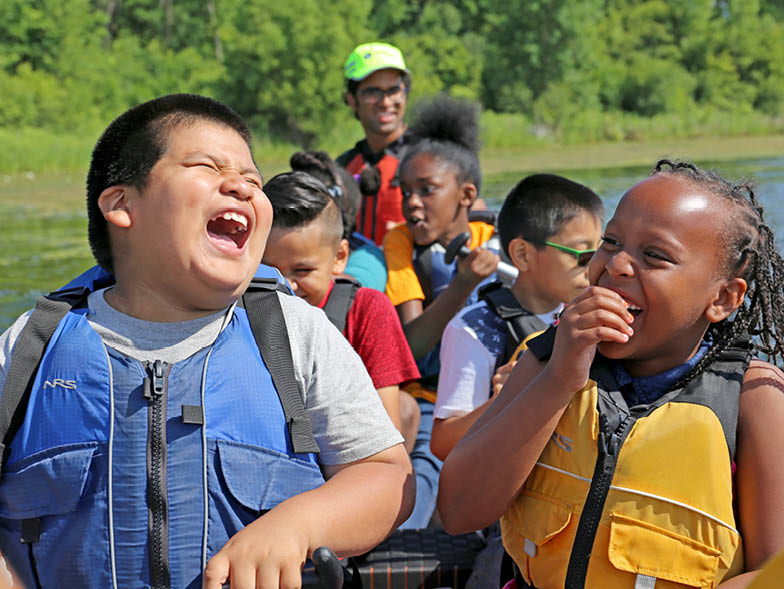
Not only does the organization make travel accessible for individuals who are differently abled, it also makes the notion of vacation a possibility for hundreds of families who have few feasible options. “Think about your own family and how huge family vacations are,” says Lais. “In the early nineties, we got a grant to work with the families of children with disabilities, and what we found was this standard model for sending the differently abled child to camp while the rest of the family would go take a vacation together. There are some amazing statistics—forty to fifty percent of these families had never vacationed together.”
Recently, WI began expanding its mission for increased access to the wilderness by offering programs like Canoemobile, which brings children living in urban areas closer to the natural world that lies just outside their reach. The program has traveled across the country, making stops in Santa Barbara, Houston, Philadelphia, Atlanta, and other major metropolitan areas. Through the program, kids journey down their local waterways via canoe to learn about the ecosystem and to develop an interest in science and nature.
Aside from outdoor exploration, one of the goals of the organization’s Outdoor Career Academy—a program aimed at young adults—is to promote opportunities for youth in urban areas to learn about career prospects in the outdoor industry, where employers may not often consider recruiting talent. “Throughout my two years of college, I don’t think my professors ever talked about what goes on behind the textbooks,” says Chu Xiong—an Outdoor Career Academy graduate and current employee of WI. “The program taught us about leadership, adaptability, teamwork, and integrity, all of which I still use today.”
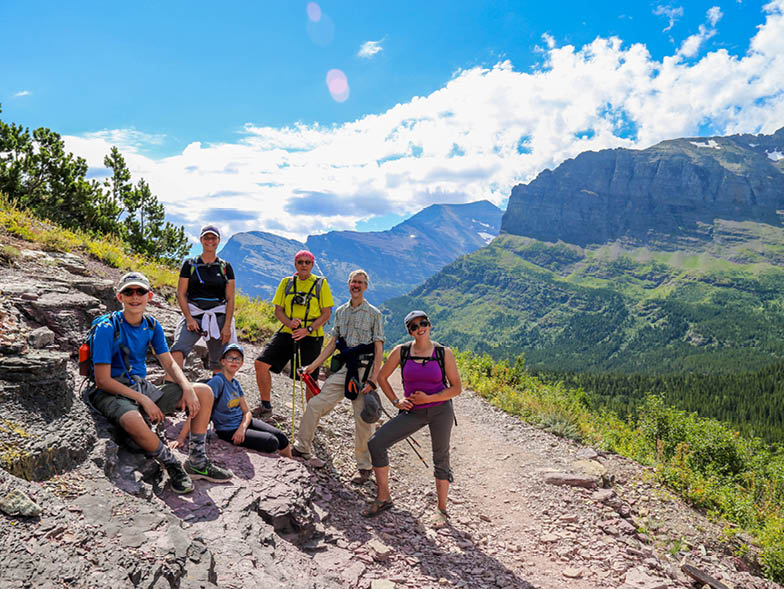
For young adults like Xiong who would otherwise have little connection with the wilderness, the Outdoor Career Academy provides a chance to learn about basic outdoor safety and conservation through activities like team building and visualize employment opportunities in the field—something Xiong says is invaluable. WI has even partnered with local REI stores, the National Park Service, and many others to place individuals in real-world positions after they have moved through the academy.
A Lesson in Diversity
Inclusivity and diversity are at the heart of Wilderness Inquiry, and it’s not a difficult concept to put into practice. Bringing groups of people together who you wouldn’t expect to interact and watching meaningful relationships form is one of the most exciting parts of a WI trip, Lais says, and one of the most rewarding aspects of his position as a founder.
As the organization celebrated its fortieth anniversary in 2018, Lais reflected on what he’s learned from the hundreds of trips he’s made with WI and the thousands of people that have benefited from its mission. “The wilderness is a level playing field because Mother Nature doesn’t really care about you,” he admits. “You learn pretty quickly that you have to depend on each other, and I think that’s one of the unspoken but profound things that happens on these trips. We discovered that a disability doesn’t really matter. It’s about a person’s attitude, willingness to be there, and participation. The way we come together as human beings—that’s what counts.”
For more info, visit wildernessinquiry.org.
